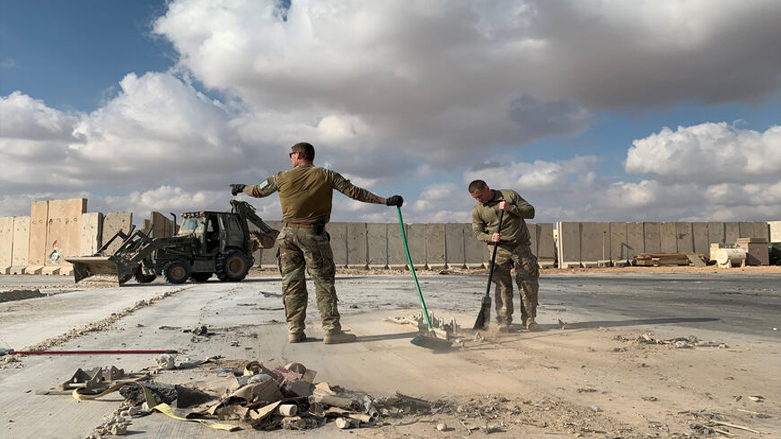US cannot leave Iraq even if it wants to, says Kurdish expert

ERBIL (Kurdistan 24) – Regardless of the desire of US political leadership to withdraw forces from Iraq, Washington cannot bear similar implications to the aftermath of the pullout in 2011, a Kurdish political analyst said.
With a new round of meetings between the US and Iraq on their future relations being held in Washington this week, focus has been on the American troop presence and possible withdrawal from Iraq.
The removal of foreign forces from the country has been a constant demand of Iraq militias with close ties to Iraq, and speculation was further fueled by the withdrawal of US troops from Afghanistan after 20 years.
“The US cannot leave Iraq even if it wants to do so,” Dr. Adel Bakhawan, the Head of the Iraqi Sociology Center in Paris, told Kurdistan 24 in an interview on Tuesday.
Ongoing US security, economic, and geopolitical interests in Iraq would make a withdrawal of the kind seen a decade ago irresponsible and abrupt, according to Bakhawan.
US Does Not Want to Repeat 2011 Withdrawal
After the US led a coalition to topple Iraq’s dictator Saddam Hussein in 2003, former President Barack Obama decided to quit Iraq in 2011 and hand control over to the country's political elite and security forces.
Just three years later, an Islamist insurgent group – known later as the Islamic State group – rampaged across the northern province of Mosul, from where they were able to eventually control a third of Iraq as a result of the meltdown of the security forces. The US was forced to form a new global coalition to salvage the country.
“The Americans do not want to repeat the experience of 2011,” Bakhawan said, adding the gap the pullout created was filled by US enemies, including Iran, rather than its allies.
ISIS Threat is Alive
The threat from the remnants of ISIS, despite the group’s “territorial defeat” in 2017, still exists in Iraq, according to the Paris-based sociologist.
“ISIS is particularly a threat to the internationalist system” which the US sees itself leading, he said.
Iraqi leaders have stressed that US combat troops are no longer needed, but the strategic dialogue talks this week have reiterated the need for logistical and advisory support from American forces to combat the remaining threat of ISIS. The militants continue to launch hit-and-run attacks in disrupted territories, targeting civilians and security forces alike.
Iran-linked Shia militias in Iraq
US forces in Iraq face another challenge in the shape of Iran-backed militias that mostly lie under the umbrella of the Popular Mobilization Forces, a state-sanctioned apparatus that is nominally part of the security forces.
PMF militias have increased pressure on Western troops to end the “occupation” of Iraq, especially after the 2020 assassination of Iranian commander Qassim Soleimani.
“The threat of the PMF on US forces is as big as the ISIS threat,” Bakhawan said, suggesting that a US withdrawal would have unbearable implications.
He added that Tehran’s engagement with the US has both strategic and tactical aspects. “Strategically, the US presence in Iran serves the Iranian interest,” he said without elaborating.
The militia attacks on US-led coalition bases and diplomatic installations in the Kurdistan Region and Iraq are seen by some as a bargaining tool in Tehran’s ongoing negotiations with Western powers over its nuclear program.
“There are talks ongoing both in Vienna and behind closed doors in Baghdad and Erbil,” Bakhawan said, explaining that the US response to attacks put pressure on the Iranians.
KRG a ‘Strategic Partner’
Bakhawan noted that the latest round of strategic talks has at times been framed as only including the Americans and federal Iraqi government, but the US insisted on mentioning the Kurdistan Regional Government in signed documents.
“It shows that the US sees the KRG as a strategic partner and a de facto entity, therefore it treats it specially,” the analyst said.
The two countries agreed this week that US forces’ future role will be advice and assistance to both Iraqi forces and the Kurdistan Region’s Peshmerga – the latter included at the insistence of the Americans, Bakhawan said.
